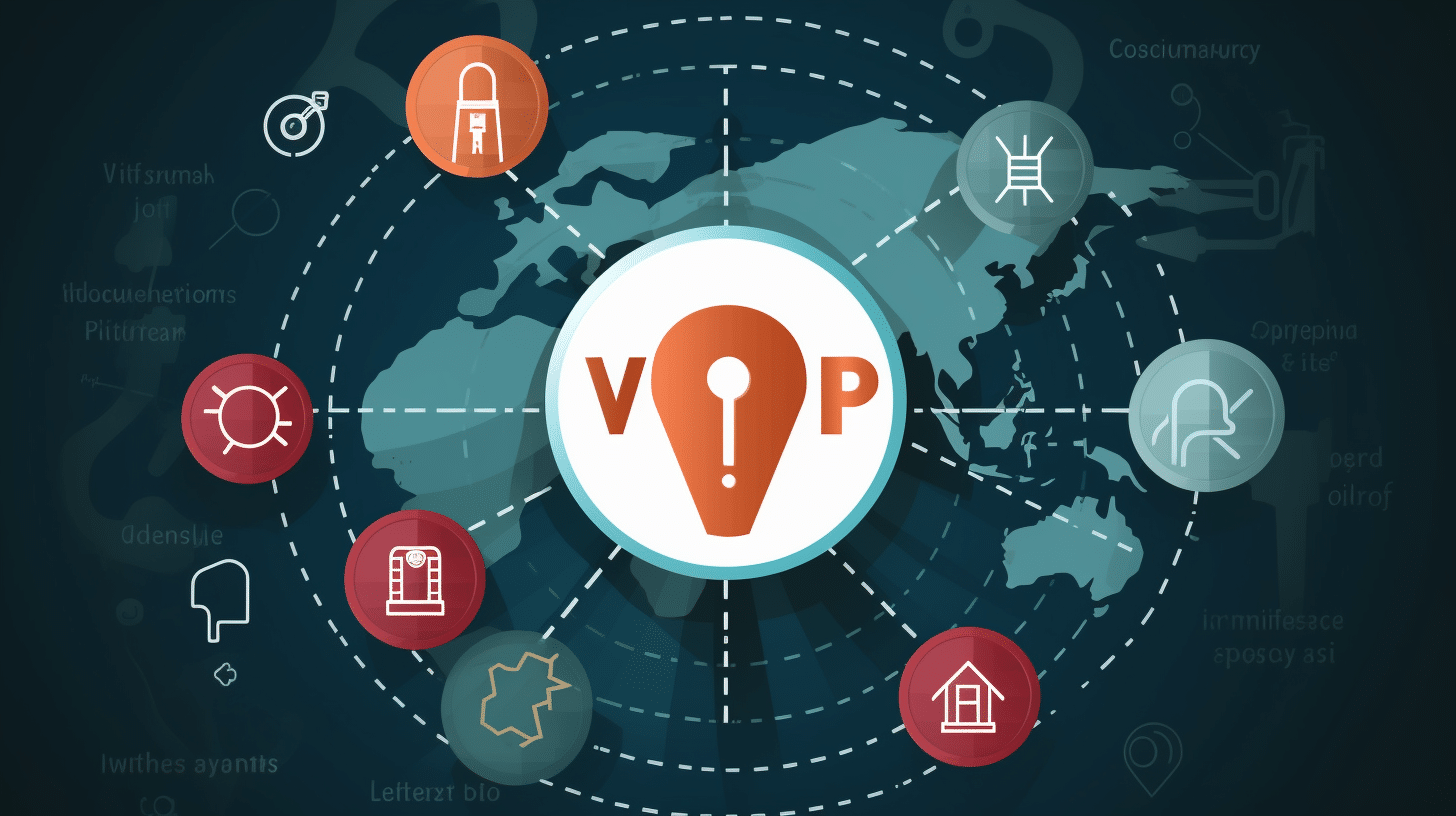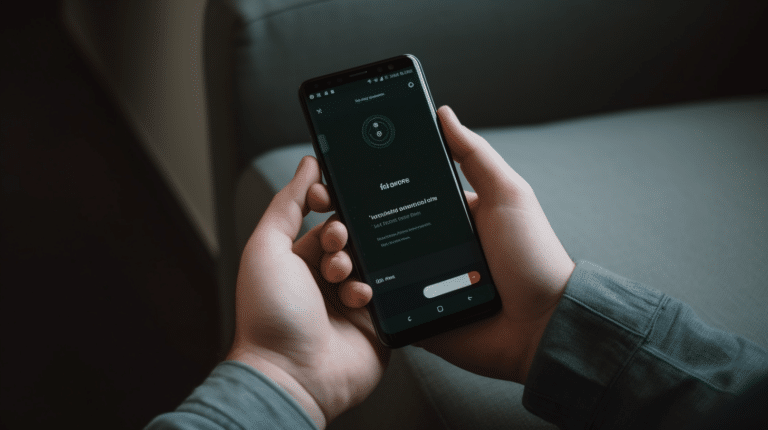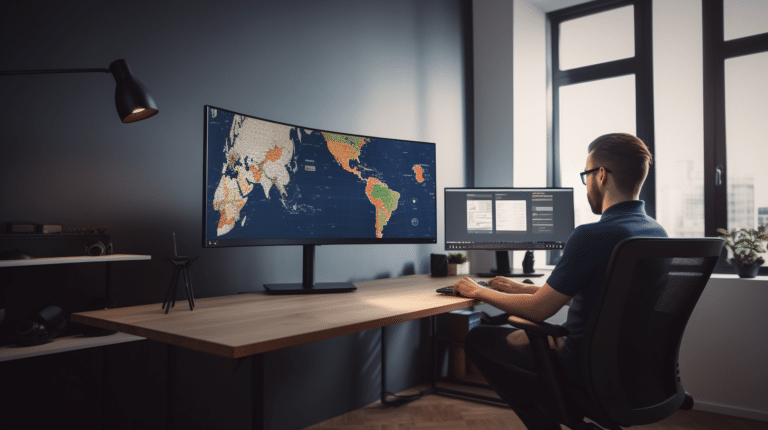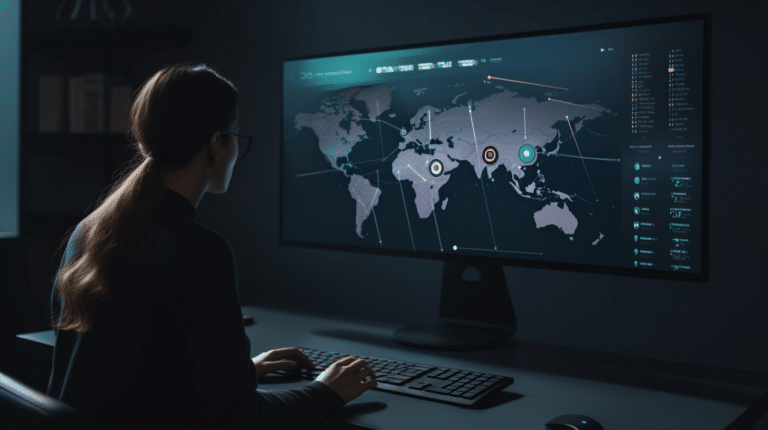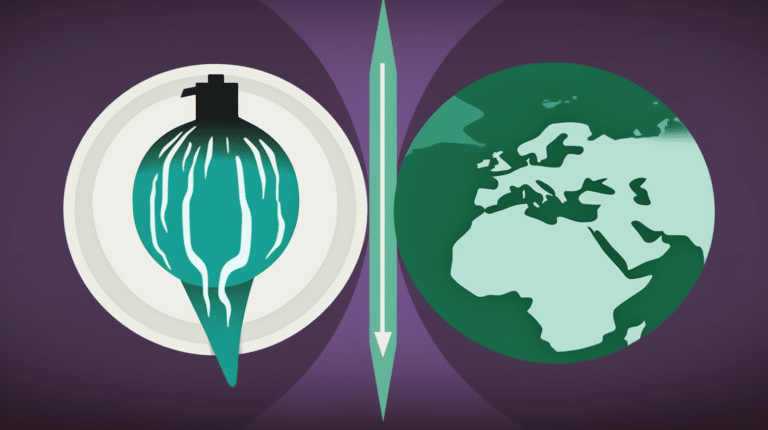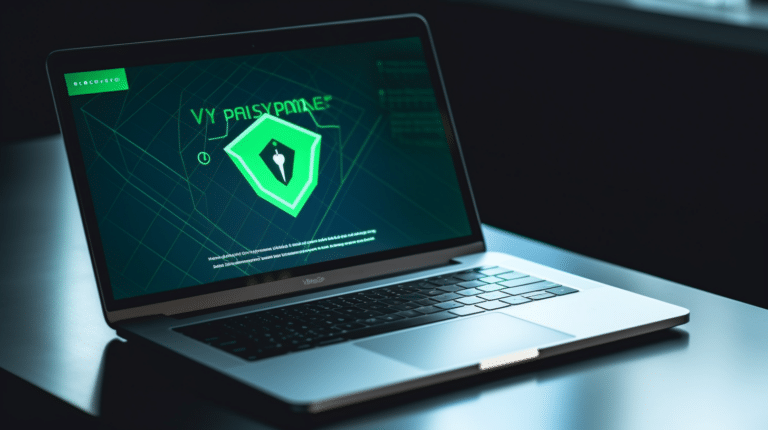The increasing concern for privacy and security in the digital age has led to the widespread use of virtual private networks (VPNs). These tools encrypt users’ internet traffic and allow them to access the web through a secure, private tunnel. While VPNs are popular for their ability to protect privacy and bypass geo-restricted content, the legality of their use can be a complex and contentious issue.
In some countries, VPNs are completely legal, while in others they may be subject to restrictions or outright bans. This differing legal landscape results from the challenge of balancing between individual privacy rights and the need for governments to maintain national security and control over the flow of information. Despite the legal complexities surrounding VPNs, users can ensure compliance with local laws by understanding the specific regulations in their country and choosing a reputable VPN provider.
Key Takeaways
- VPN legality varies across countries, with some allowing unrestricted use and others implementing bans or restrictions.
- Understanding local laws and choosing a trustworthy VPN provider can help users ensure legal compliance.
- Governments may restrict or ban VPNs for reasons like national security concerns or controlling information flow.
Understanding VPNs and Legality
What Are VPNs?
Virtual Private Networks (VPNs) are a technology that allows users to create a secure and private connection over the internet. They work by encrypting the user’s data and routing it through a remote server, effectively masking their online activities and protecting their identity. VPNs are commonly used to access region-restricted content, bypass network censorship, and enhance online security.
The Legality of VPNs
The legality of VPNs varies depending on the country and its laws. In most countries, using a VPN is legal as it’s considered a legitimate tool for protecting a user’s privacy and ensuring their online security. However, it’s essential to note that engaging in illegal activities while using a VPN is still against the law.
In some countries, the use of VPNs is restricted or entirely illegal. For example, China imposes strict regulations on VPN usage, making it illegal to use an unauthorized VPN service. In such cases, governments might block access to VPN websites or criminalize VPN usage without official permission. It’s crucial for users in these regions to understand their country’s VPN and internet laws to avoid legal consequences.
In addition to government regulations, the use of VPNs can also face legal issues related to copyright infringement. Accessing copyrighted content, like movies or music, through a VPN without the appropriate license is illegal. Regardless of the VPN’s legality, users should adhere to the rules governing the use of copyrighted materials and respect intellectual property rights.
While VPNs can be beneficial in protecting user privacy and online security, it’s essential to understand the legal aspects surrounding their use in a specific jurisdiction. Responsible use of VPNs and adherence to local laws will help users avoid legal complications and enjoy the benefits of VPN services safely and securely.
VPN Legality in Different Countries
Legal Status in Major Countries
In the United States, VPN usage is legal and widely accepted for securing internet connections and online privacy. European countries and the United Kingdom also have legal VPN usage, with many businesses and individuals relying on them for security and content access.
However, not all countries share the same stance on VPN legality. Some have restrictions or outright bans on VPN services.
Countries with Restrictions or Bans
China has strict control over internet access and content, and while VPN services are not entirely illegal, the government heavily regulates their use. Unauthorized VPNs are illegal and have been targeted for removal from app stores.
Russia also enforces restrictions on VPN usage, requiring VPN providers to comply with the government’s online content censorship. Failure to comply may lead to fines or a total ban of the service.
Several countries in the Middle East have restrictions or bans on VPNs. For instance:
- Belarus: VPN usage is illegal and can result in penalties for users.
- Iraq: Unauthorized VPNs are illegal as the government aims to control online activity.
- Oman: While VPNs are not banned entirely, their usage is restricted mainly to licensed businesses.
Countries like North Korea, UAE, Turkmenistan, and Egypt also enforce varying levels of VPN restrictions for their citizens. Generally, these restrictions are imposed to control information flow and maintain strict state-sponsored censorship. VPN users in these countries may face penalties or limitations depending on the nature of their usage and the specific legislation enforced.
Why Governments Restrict or Ban VPNs
Virtual Private Networks (VPNs) have become increasingly popular as a means for individuals to protect their privacy and bypass internet censorship. However, some governments choose to restrict or ban VPN usage in their countries. This decision can be attributed to a combination of factors, such as controlling access to information, enforcing regulations, and maintaining surveillance.
One of the primary reasons governments restrict or ban VPNs is to control access to information. By using a VPN, users can bypass internet censors and access content that may be blocked or restricted in their countries. This can be especially concerning for governments that want to maintain control over the flow of information within their borders. They may see VPNs as a threat to their ability to restrict access to certain websites, online platforms, or content deemed undesirable or even harmful.
Another reason for restricting VPNs is enforcing regulations. Governments often have specific laws and regulations pertaining to the access and use of the internet. For instance, restrictive VPN laws are prevalent in some countries where VPN usage is considered illegal. VPNs can make it challenging for authorities to determine if users are breaking the law or accessing content that violates the regulations. This makes some governments view VPNs as a means of circumventing their legal frameworks, which is a catalyst for their decision to ban or restrict their usage.
Furthermore, governments often engage in surveillance of their citizens’ internet activities for various reasons, such as national security and crime prevention. VPNs can hinder these surveillance efforts by encrypting users’ internet traffic and disguising their IP addresses. This makes it difficult for Internet Service Providers (ISPs) and government agencies to monitor and analyze data. As a result, governments may impose restrictions on VPN use to ensure that surveillance measures remain effective.
In conclusion, governments that restrict or ban VPNs often do it to maintain control over access to information, enforce their legal frameworks and regulations, and ensure that their surveillance measures remain effective. While VPNs offer enhanced privacy and freedom of information for users, their use can be seen as a challenge for governments that prefer to maintain tighter control over the internet within their borders.
Choosing a Legal VPN Provider
When it comes to choosing a VPN provider, there are several considerations to keep in mind. Not all VPNs are created equal, and some may not provide the level of privacy, security, and legal compliance you need. This section will discuss privacy and security considerations, as well as what to look for in a provider to ensure you are making the best choice.
Privacy and Security Considerations
While the primary focus of a VPN is to offer increased privacy and security while browsing the internet, it’s essential to select a provider that prioritizes these features. Look for VPNs that are registered in countries where businesses are legally bound to protect user data and have a strong commitment to no-logs policies, meaning they do not store any user activity or data for extended periods. Both NordVPN and ExpressVPN are examples of providers with such policies in place.
Moreover, it’s crucial to select a VPN provider that utilizes advanced encryption and security protocols to protect your information. Look for a provider that offers at minimum 256-bit AES encryption with OpenVPN or IKEv2/IPSec as their main protocols. This ensures your data is protected from prying eyes and vulnerabilities.
What to Look for in a Provider
When selecting a VPN provider, there are several factors to take into account:
- Reputation: Look for providers with a solid track record in the industry, consistently positive reviews from users and experts alike. NordVPN and ExpressVPN are examples of highly reputable providers in the VPN market.
- Server network: A larger network of servers in multiple countries allows for better performance and increased geographic diversity. This is essential when bypassing geo-restrictions, accessing content, or maintaining a consistent connection.
- Speed and performance: A good VPN provider should offer fast and stable connections with minimal impact on your browsing speeds.
- Customer support: Look for a provider with responsive and helpful customer support available through various channels such as chat, email, and phone.
- Available features and compatibility: Your chosen VPN provider should be compatible with multiple devices and operating systems. Additionally, features such as kill switches, split tunneling, and leak protection are essential in ensuring your privacy and security are maintained.
In summary, selecting a legal VPN provider involves thorough research and consideration of multiple factors to ensure your privacy and security are safeguarded.
VPN Usage and Ensuring Legal Compliance
Responsibility of Users
VPNs, or Virtual Private Networks, provide a secure and private connection for users to access the internet. However, the legality and compliance with laws depend on the user’s actions. In most countries, using a VPN is legal, but participating in illegal activities while connected to a VPN is still prohibited. Users have a responsibility to understand the terms and conditions of VPN providers as well as the laws and regulations within their jurisdiction.
As a user, you should be aware of copyright and intellectual property laws in your location. Accessing copyrighted, restricted content, or engaging in file-sharing activities might lead to legal consequences if done without proper permissions. It is crucial to remind ourselves that VPN usage should not facilitate any illicit actions, but rather ensure security and privacy when navigating the online world.
Preventing Illegal Activities
VPN providers and law enforcement agencies have a shared concern for maintaining the internet’s integrity and preventing illegal activities from transpiring. To achieve this, various methods and measures are in place:
- VPNs must comply with legal frameworks and data retention policies, which can lead to cooperation with law enforcement agencies when required. It is essential to read the VPN providers’ policies and understand the level of data logging and sharing with third parties.
- Some VPN providers implement techniques to prevent users from engaging in activities that violate copyright and trademark laws, like torrenting copyrighted materials. This maintains the integrity of the network and upholds legal compliance.
- Using VPNs to bypass geographical restrictions imposed by content providers or governments is not always illegal but might go against their terms of service. In these cases, the content provider may take action, such as suspensions or bans, to enforce compliance. It is recommended that users respect these restrictions to avoid potential consequences.
To ensure legal compliance when using VPNs, it’s crucial for both individual users and service providers to understand their roles and responsibilities. By adhering to the guidelines mentioned above, a secure, private, and lawful VPN experience can be achieved.
Risks Associated with VPN use
While VPNs offer a range of benefits, such as enhanced privacy and the ability to access geographically-restricted content, there are some risks associated with using them. One of the primary concerns is the potential for hacking. Cybercriminals may target VPNs to gain unauthorized access to a user’s network or intercept sensitive data. To mitigate this risk, it is essential to select a reliable VPN provider with a strong security reputation and updated security protocols.
Identity theft is another concern when using a VPN. Some VPN providers may log user information or sell data to third parties, compromising the user’s privacy and opening the door for identity theft. To minimize this risk, look for VPN providers that have a strict no-logs policy and are transparent about their data practices.
Deep Packet Inspection (DPI) is a network-based surveillance technique that allows Internet Service Providers (ISPs) or other entities to analyze data packets in real-time. DPI can be used to detect VPN traffic and potentially block or throttle it, limiting the effectiveness of VPNs in maintaining online privacy. While some VPNs employ obfuscation techniques to bypass DPI, there is no guarantee that these methods will always be successful.
Cybercrime is another risk associated with VPN use. While VPNs can anonymize your online activity, they can also be used by cybercriminals to carry out illegal activities by masking their identities. This could lead to law enforcement scrutinizing VPN providers and their users. To avoid this risk, ensure that you abide by your jurisdiction’s laws and use a trustworthy VPN provider with robust security measures.
In conclusion, while VPN technology provides significant advantages in enhancing privacy and security, it is crucial to acknowledge the potential risks and select a reputable VPN provider to minimize any associated threats. Always remember to practice safe online behavior and stay informed about the latest cybersecurity developments.
Additional Considerations and Recommendations
How VPNs Affect Streaming Services
VPNs can be a useful tool for accessing streaming services such as Netflix from different geographical locations. However, some streaming platforms actively block VPNs, as they can be used to bypass licensing restrictions. If you’re looking to use a VPN for streaming purposes, make sure to choose a VPN provider that can reliably unblock the desired content without violating the platform’s terms of service.
Free VPNs vs. Paid VPNs
When considering a VPN, it’s essential to compare free and paid options. Free VPNs can provide basic privacy and security features, but they may come with limitations such as bandwidth caps, fewer server locations, and slower speeds. Moreover, many free VPNs have been found to collect and monetize users’ personal data, which undermines the purpose of using a VPN for privacy and security. On the other hand, paid VPN providers offer more advanced features, better performance, and a higher level of security and encryption. When choosing a VPN, it’s crucial to weigh the pros and cons of each option and prioritize your online safety.
VPN Policies and Security Standards
Before selecting a VPN provider, it’s important to review their policies and security standards. One key factor to consider is the provider’s no-logs policy. This means that the VPN does not record or store your online activity, IP address, or personal data, ensuring that your privacy remains protected even if the VPN provider is subpoenaed by authorities. Additionally, look for a VPN that offers strong encryption protocols, such as OpenVPN or WireGuard, which provide a secure and anonymous connection to the internet.
It’s also essential to consider the VPN provider’s jurisdiction and legal compliance. For example, VPNs might be restricted or even illegal in countries like the United Arab Emirates. Users in such locations should research local laws and regulations to avoid potential consequences. In contrast, a VPN provider based in a country with strong privacy protection laws, such as the United States, may be more likely to adhere to higher security standards and protect users’ online privacy.
Frequently Asked Questions
Is it illegal to use a VPN for streaming services?
Using a VPN for streaming services is not inherently illegal. However, using a VPN to access content that is geographically restricted or violates copyright law can be problematic. For example, bypassing geofences with a VPN to access legal content might not be illegal itself, but it could lead to a violation of the streaming service’s terms of service.
Are VPNs allowed in the United States?
VPNs are legal in the United States, and many individuals and businesses use them for legitimate purposes. However, using a VPN for illegal activities remains illegal, regardless of whether a VPN is used or not.
What are the legal consequences of using a VPN?
The legal consequences of using a VPN depend on the activities conducted while using it. If a VPN is used for legal purposes, there should be no legal consequences. However, if a VPN is used to engage in illegal activities, such as accessing copyrighted content without permission, the user could potentially face charges related to those illegal activities.
Are VPNs prohibited in Europe?
VPNs are not universally forbidden in Europe. However, some European countries have more restrictive laws regarding VPN usage. For example, the Kingdom of Saudi Arabia passed a law in 2017 regulating VPNs. While VPNs are not outright prohibited in the region, the law requires VPN providers to comply with certain regulations and allows security agencies to access VPN data.
Can I get in trouble for using a VPN?
If you use a VPN for legal purposes, the likelihood of getting in trouble for utilizing one is minimal. However, if you engage in illegal activities while connected to a VPN, you could face legal consequences, even if the VPN itself is not illegal. It is essential to be aware of your local laws and the terms of service for the services you access while using a VPN.
Do VPN laws vary by country?
Yes, VPN laws can vary significantly from one country to another. While some countries allow VPN usage without restrictions, others may have stricter regulations or even ban VPNs altogether. Researching the laws of your country, as well as any countries you plan to visit, is crucial to ensure compliant usage of VPNs.
